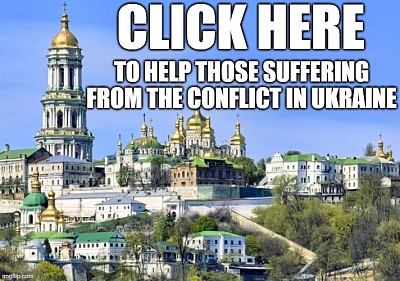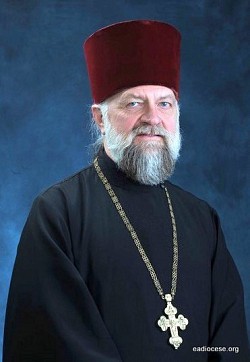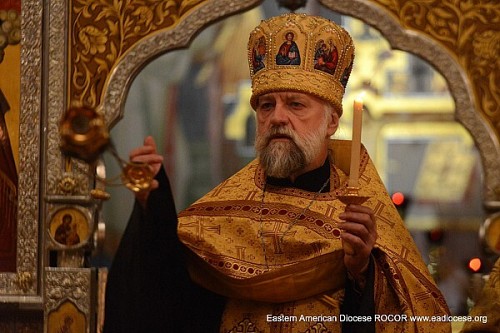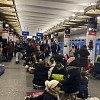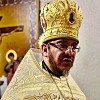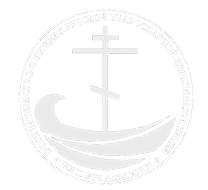The tragedy taking place these days in Ukraine resonates with living pain in the heart of the Russian Orthodox Diaspora, a significant part of which also has Ukrainian roots. Archpriest Victor Potapov, rector of St. John the Baptist Cathedral in Washington, DC, and a member of the board of directors of the Fund for Assistance to ROCOR (FFA), spoke about the support our parishes provide through the Fund and how believers are facing the current situation.
– Fr. Victor, would you please share what kind of assistance the Russian Church Abroad is providing to refugees in Ukraine?
– When the military operation began in Ukraine, we were of course shocked and disturbed that the crisis had blown up to such an extent. The first thing that came to my mind was that we as Orthodox Christians need to gather and to pray so that the Lord will grant peace to the Russian and Ukrainian lands. So, the day the war began, we in Washington gathered in church and served a moleben before our copy of the Kursk Root icon of the Mother of God, which is the central miraculous icon and Protectress of the Russian Diaspora.
Then we had a second moleben, which we directed to St. John of Shanghai & San Francisco, who is the founder of our parish and who was born in the village of Adamovka in the Donetsk region of Ukraine when it was part of the Russian Empire. In addition, we chant special prayers for peace at every single Divine Liturgy served in our church.
We also took up collections for the Ukrainian refugees. As of today, we have collected $12,500 (now $16,000 – editor), and people are still sending money.
I know that in every diocese of ROCOR and in many of our parishes, our faithful are also collecting money for the refugees in Ukraine and in Donetsk, so we hope when all is said and done we will have collected a generous amount of money for people in need.
As soon as we finish collecting here in Washington, DC, we will send our check to the Fund for Assistance to the ROCOR which, in turn, will transfer all the money to Metropolitan Onufry, the primate of the Ukrainian Orthodox Church. We will do this through our Metropolitan Mark of Berlin & Germany. Thank God, he has a way of providing these funds to Ukraine, so we feel confident that all the money collected will go directly to Metropolitan Onufry, who knows better than anybody else who needs these funds most of all.
We probably will not know the exact amounts, because some parishes have only begun to collect funds, so it will probably take a couple of weeks before we get a final figure. We at the FFA will discuss all these details, but I am sure that we will send some money right away, because people need the assistance, and we cannot wait much longer. And then we will share the rest as soon as parishes send their collections.
– In Washington, almost half our parishioners are Ukrainians, while another half is Russian, and I think that most of ROCOR parishes have the same configuration. How are you dealing with this situation?
– Our Metropolitan Hilarion has instructed us not to discuss politics in the church. There is nothing we can really do about politics except pray for peace. Our First Hierarch, by the way, is Ukrainian. My matushka is half Ukrainian, as I am half Ukrainian on my mother’s side – for us, this is a very tragic situation, and it breaks our hearts that is happening because Russians and Ukrainians are brothers and sisters.
However, I have to say that Ukrainians who come to our church are not leaving, they are coming to the services. I think many of them were inspired by the fact that we are praying for Ukraine, that we are collecting money for refugees. I think they understand that we here have nothing to do with this crisis, all we can do is pray and provide benevolent assistance.
– So people do not leave the church?
– No, no one has left.
– But people come to you and ask for your advice. What are you recommending to them?
– Yes, of course, they ask for my advice, they ask for clarification, and some people just express their frustration. We try to help them as much as we can by reminding them that we are Christians and that we need to pray and always seek peace because this is the will of God. Now we are in the midst of Great Lent, a time of repentance. Of course, it is too bad that this crisis coincided with the beginning of Great Lent, and it is hard to focus on Lent when you are thinking about this suffering of people.
– Is it difficult to keep peace in the soul in this situation?
– Of course, it is difficult because we are all human. But it is possible to find peace. We just hope that this conflict will not last for a long time and the outcome will be a positive one for both sides.
Dmitry Zlodorev
Washington
|

